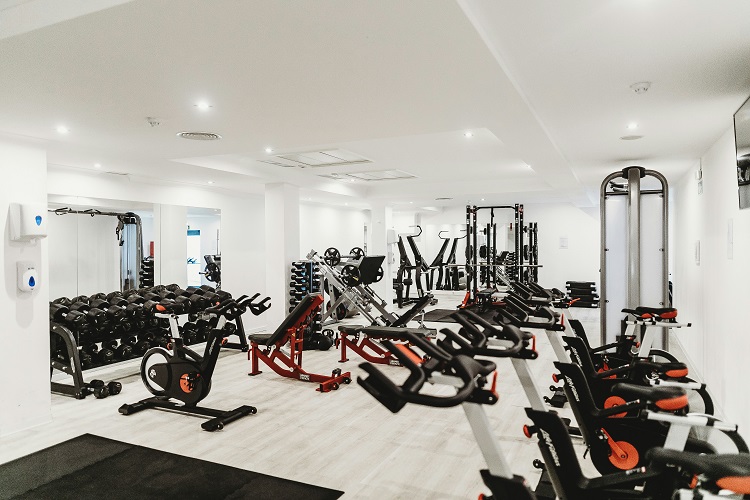From Sweat to Shillings: How to Build a Thriving Fitness Training Business in Kenya

Your step-by-step guide to turning passion for fitness into a profitable venture.
The Rise of Fitness Culture in Kenya
A few years ago, the only time most people “worked out” was walking to the bus stop or doing weekend chores. Today, Nairobi, Mombasa, Kisumu, and other towns are buzzing with gyms, yoga studios, Zumba classes, and personal trainers on Instagram.
This isn’t just a fad — it’s a lifestyle shift.
- Health Awareness: More Kenyans are realizing that prevention is cheaper than hospital bills.
- Social Media Influence: Fitness influencers are showing us that a toned body isn’t just for celebrities.
- Workplace Wellness: Companies are starting wellness programs to keep employees active and productive.
If you’ve been thinking, “I love fitness — can I make money from it?” the answer is YES. The industry is growing, and with the right approach, you can grab your share of the market.
Three Main Paths to Start Your Fitness Business
1. Open a Gym
A gym is a go-to hub for anyone serious about strength, cardio, and community workouts.
- Capital Needs: KSh 1.2M – 4M (space, equipment, licenses).
- Best For: Those with resources to invest and a long-term growth vision.
- Extra Income Ideas: Sell supplements, branded gym gear, or healthy snacks.
Real-Life Connection:
Joseph, a 34-year-old entrepreneur in Westlands, started with a 2-room space and second-hand gym equipment bought from a closed-down hotel gym. Today, he has over 250 members paying KSh 4,000/month.

2. Yoga or Pilates Studio
Yoga is no longer just a “foreign” trend — it’s becoming a Kenyan favorite, especially in urban and coastal areas.
- Capital Needs: KSh 350K – 1.5M (mats, props, mirrors, interior ambiance).
- Best For: Wellness-focused entrepreneurs targeting niche, stress-relief markets.
Real-Life Connection:
Catherine, a yoga instructor in Kilifi, started teaching on the beach with just five mats. Now she runs retreats for local and international clients, charging up to KSh 10,000 per weekend session.

3. Personal Training
Personal trainers are the “Uber” of fitness — flexible, mobile, and personalized.
- Capital Needs: KSh 50K – 300K (certification, basic portable equipment).
- Best For: Trainers who want low startup costs and high client engagement.
Real-Life Connection:
Peter, a certified trainer in Nairobi, charges KSh 1,500 per one-hour session. With 4–5 clients a day, he makes more than some corporate jobs.

Upcoming Fitness Industry Trends in Kenya
- Hybrid Fitness Models – In-person + virtual classes via Zoom, YouTube, or Instagram Live.
- Boutique Fitness Studios – Smaller, specialized studios focusing on one niche (boxing, spin, dance).
- Fitness Tech – Wearable trackers, calorie apps, and AI-based workout planners.
- Wellness Tourism – Coastal areas attracting tourists for yoga, detox, and spa retreats.
- Corporate Wellness Programs – Companies hiring trainers for staff fitness packages.
What You’ll Need to Get Started
| Expense Item | Low Budget (KSh) | Mid Budget (KSh) | High Budget (KSh) |
|---|---|---|---|
| Space Rent (per month) | 30,000 | 70,000 | 150,000 |
| Basic Equipment | 150,000 | 500,000 | 2,000,000 |
| Certification & Training | 50,000 | 80,000 | 150,000 |
| Branding & Marketing | 20,000 | 60,000 | 200,000 |
| Licenses & Permits | 10,000 | 15,000 | 25,000 |
| Staff Salaries (per month) | 40,000 | 120,000 | 300,000 |
| Miscellaneous (utilities, repairs) | 15,000 | 30,000 | 50,000 |
| Total Startup Estimate | 315,000 | 875,000 | 2,875,000+ |

How to Stand Out from Competitors
- Specialize – Offer unique classes like boxing yoga, spin & strength fusion, or HIIT for busy professionals.
- Leverage Social Media – Post transformation stories, live workouts, and nutrition tips.
- Flexible Pricing – Pay-per-class, weekly passes, and monthly memberships.
- Progress Tracking – Offer regular fitness assessments to keep clients motivated.
- Community Building – Organize monthly fun runs, hikes, or charity bootcamps.
The Biggest Mistake Fitness Entrepreneurs Make
They focus only on training clients and ignore training their business. Without tracking income, expenses, and staff commissions, you risk working hard for little profit.
How PESABOOK Can Help Flex Your Business Muscles
PESABOOK is your “business trainer”:
- Track every payment from memberships, classes, and merchandise.
- Manage staff commissions automatically — no fights, no confusion.
- Record expenses to see exactly where your money is going.
- Send SMS promos to remind clients about renewals, events, or offers.
Because just like abs, profits don’t appear by accident — they need consistent work.

Final Word
Whether you’re opening a gym, teaching yoga, or running personal training sessions, the fitness industry in Kenya is full of opportunities. The market is growing, clients are willing to pay for results, and with the right tools, you can turn passion into a sustainable business.
So start small if you have to. Train your clients, train your business, and watch both grow stronger.